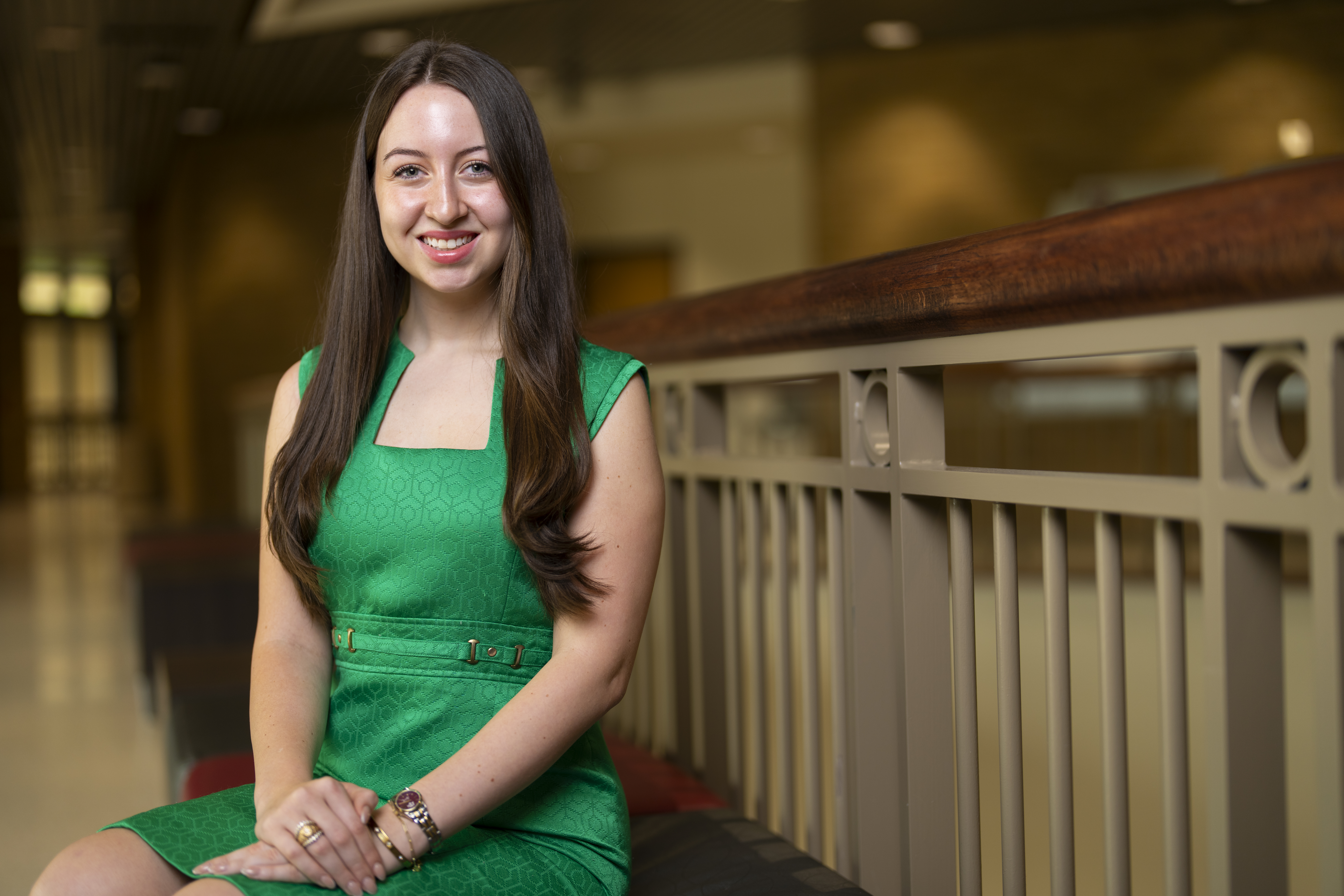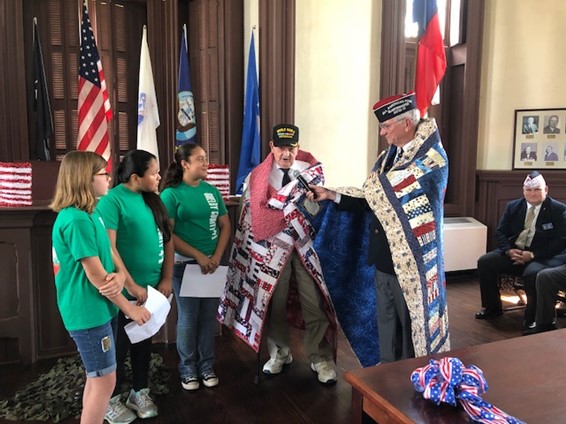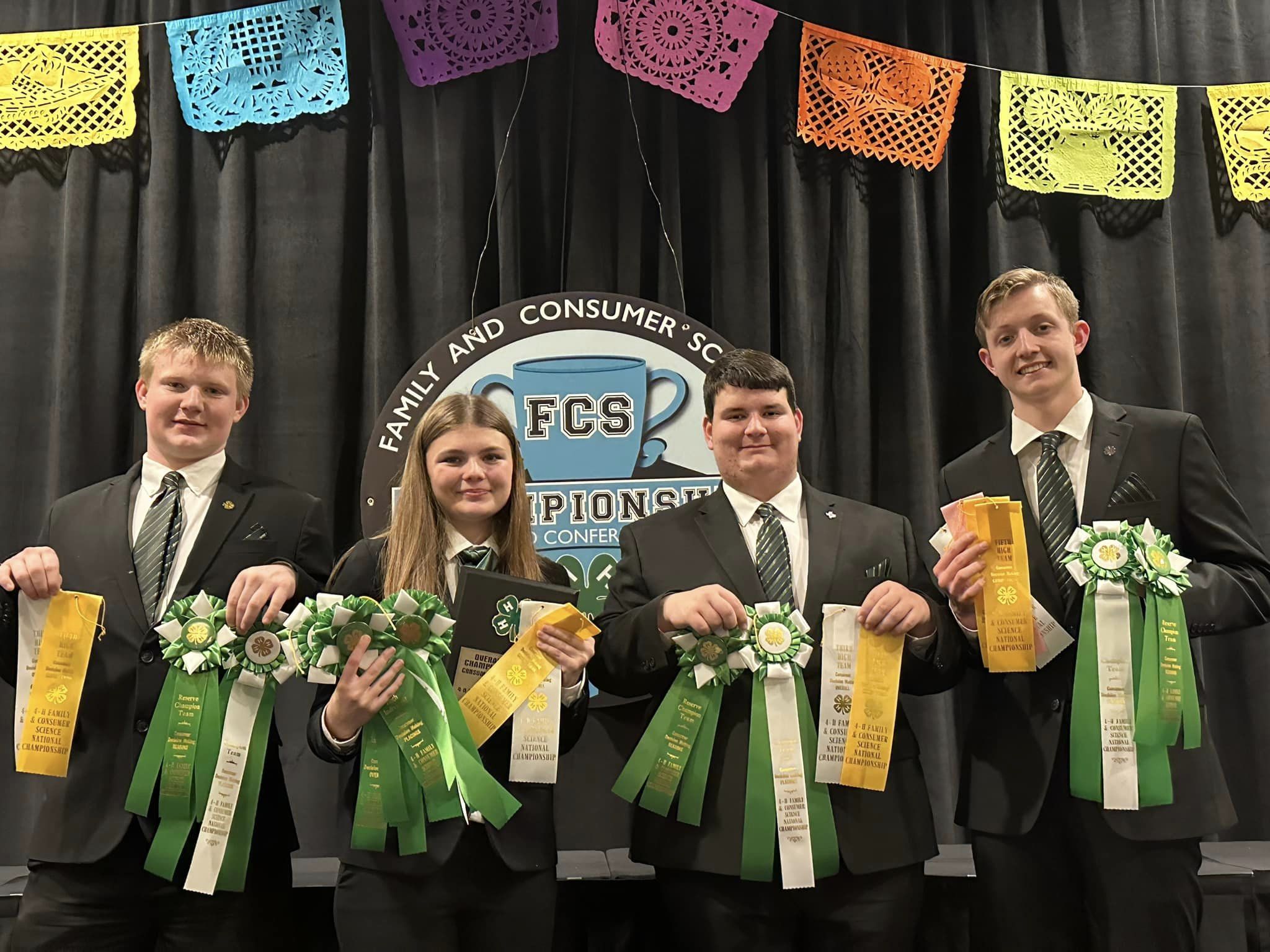US Rep. Colin Allred, STEM scholars tour AgriLife Dallas Center
U.S. Rep. Colin Allred and a group of 10 high school scholars toured the Texas A&M AgriLife Center at Dallas for a hands-on look at the technologies shaping modern agriculture.
The field trip was part of Allred’s STEM Scholars program, which connects highly-motivated high school students to learning experiences in science, technology, engineering and mathematics, the STEM disciplines, in Texas’ 32nd U.S. Congressional District. The District encompasses parts of North Dallas, Richardson and Garland among other areas.
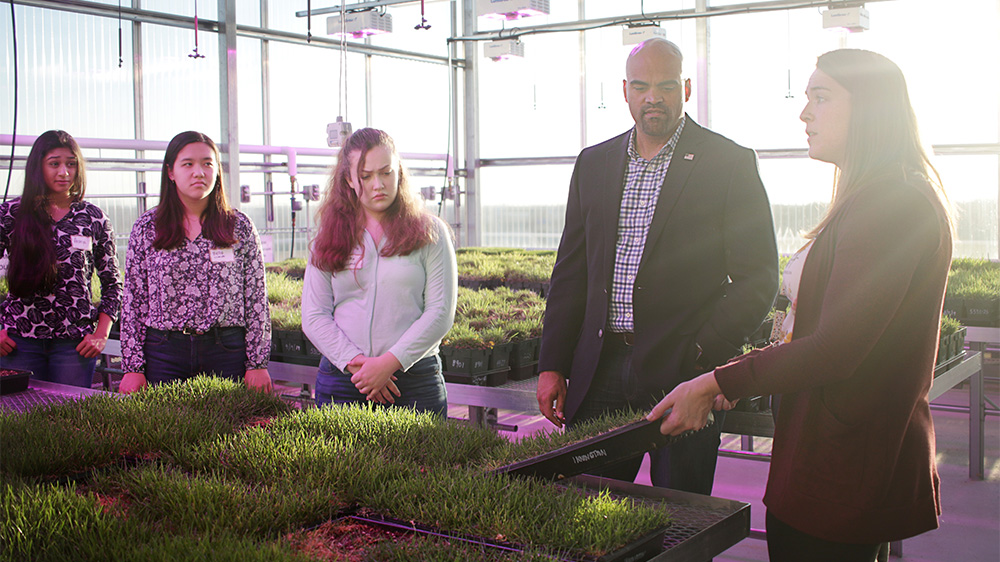
“We’ve got some really bright people who we’re trying to expose to as many scientific endeavors as we can,” Allred said. “I think what Texas A&M AgriLife is doing here in Dallas is incredible. The research that’s going on here is incredible… and we’re trying to help spread the word about that.”
Engaging STEM
A goal of Allred’s new program is highlighting STEM careers and the ways in which organizations employ STEM in problem-solving. The Dallas Center visit was one of four planned trips to STEM-related businesses and facilities, which will continue through spring 2020.
Participating high schoolers from across the district joined Allred, center faculty and staff in touring the newly renovated Dallas Center campus at 17360 Coit Rd. The excursion included green infrastructures across campus, urban agriculture research facilities and program overviews.
As part of the hands-on experience, guests made their own salad dressing and kiwi-mandarin salad in a hands-on healthy cooking demonstration led by Carissa Willhelm, Texas A&M AgriLife Extension Service’s Dinner Tonight program specialist, Dallas.
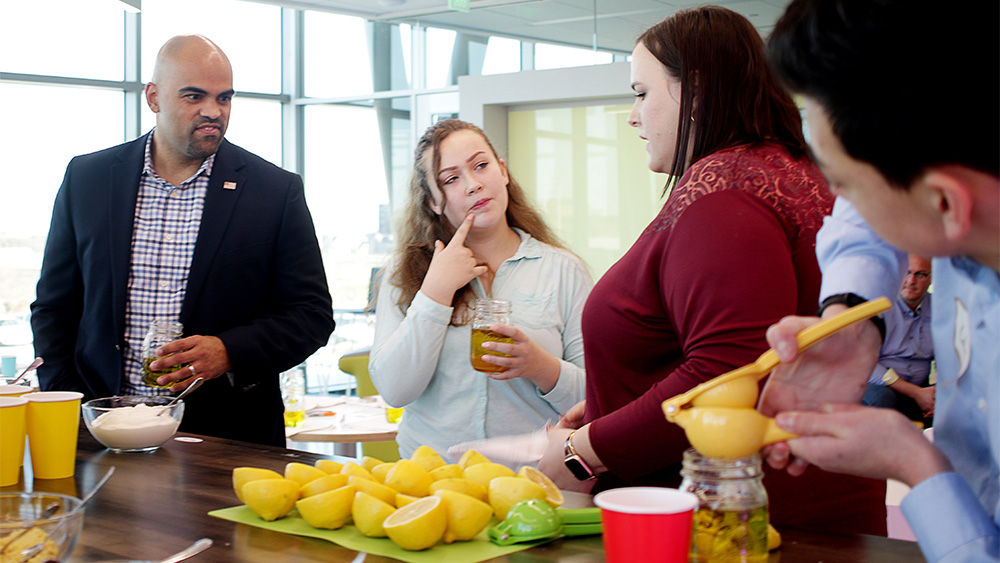
Afterward, the group explored the center’s three-story Urban Agriculture and Forestry Building — the headquarter’s facility that anchors the Dallas campus. It houses research laboratories, an advanced rooftop research greenhouse and the latest equipment for genomics studies, plant tissue culture and freshwater ecosystem research.
During a talk with Genhua Niu, Ph.D, professor of urban agriculture at the center, students learned about the horticultural technologies surrounding food production in cities. They also explored ongoing turfgrass research in the center’s rooftop greenhouses with Chrissie Segars, Ph.D, AgriLife Extension professor and turfgrass specialist.
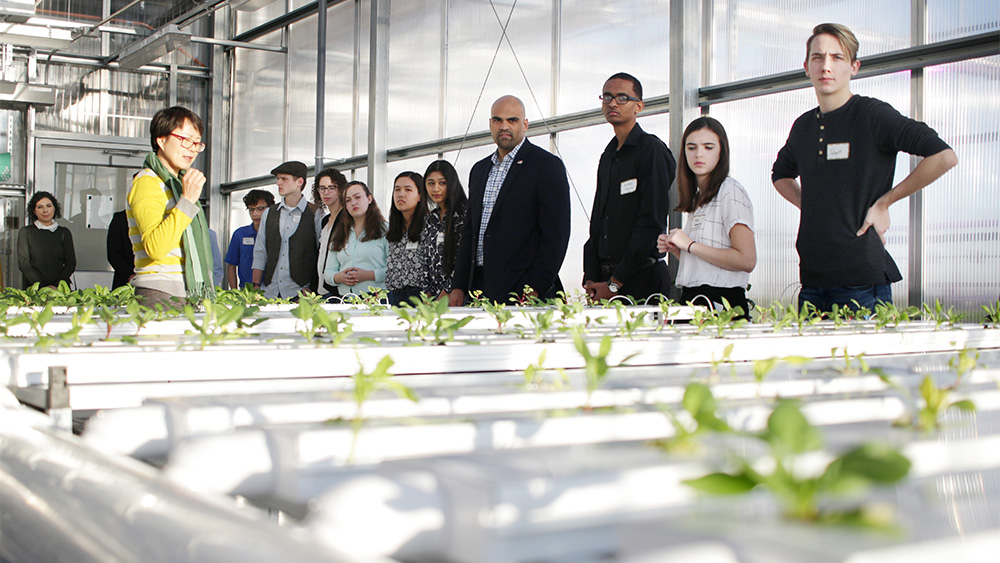
“Learning about the STEM field and wanting to go into STEM, it’s cool to see… all the different types of ways you can use the skill,” said Bella Tiscreño, a junior at Highland Park High School. I don’t know exactly what I want to do, but seeing this, I thought, ‘well maybe I do want to go into agriculture or something similar to this.’”
In their final tour of the trip, students walked the center’s 4-acre public landscape alongside Texas A&M AgriLife Research horticulturist Daniel Cunningham — a member of the center’s Water University program. Cunningham reviewed the importance of regionally native plants, rainwater harvesting, sustainable landscape design and water-conscious infrastructure.
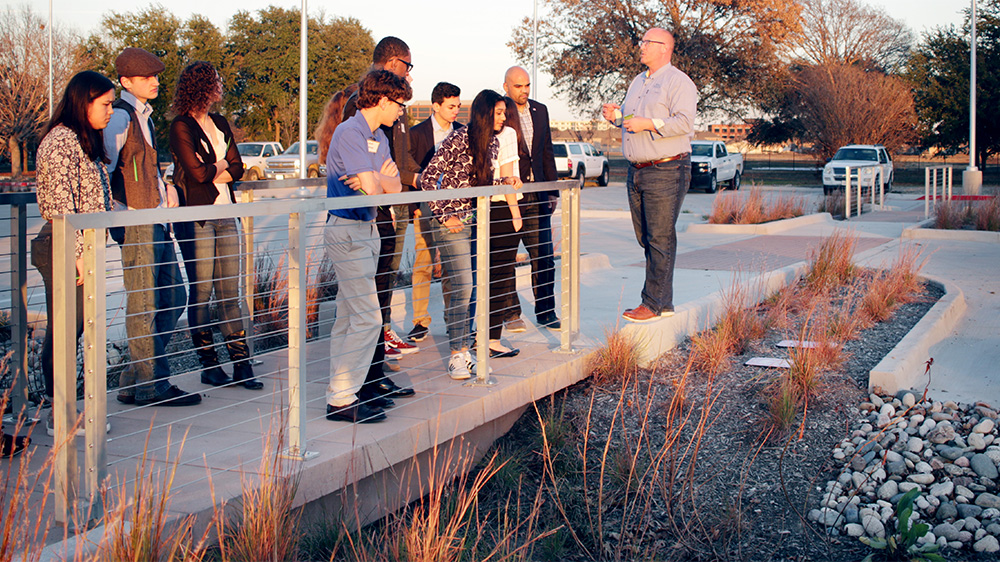
“More than anything, the Dallas Center is a resource for new understanding, whether through our research or by delivering knowledge through our extension work,” said Jared Conrad, center administrator and organizer of the tour. “Our mission is reflected very well in learning experiences like this one, which help develop the next generation.”
The Texas A&M AgriLife Center at Dallas is a scientific research campus and headquarters for public teaching. Texas A&M AgriLife researchers and extension specialists at Dallas work to advance three areas: urban agriculture and forestry, water and land resources, and healthy living.

